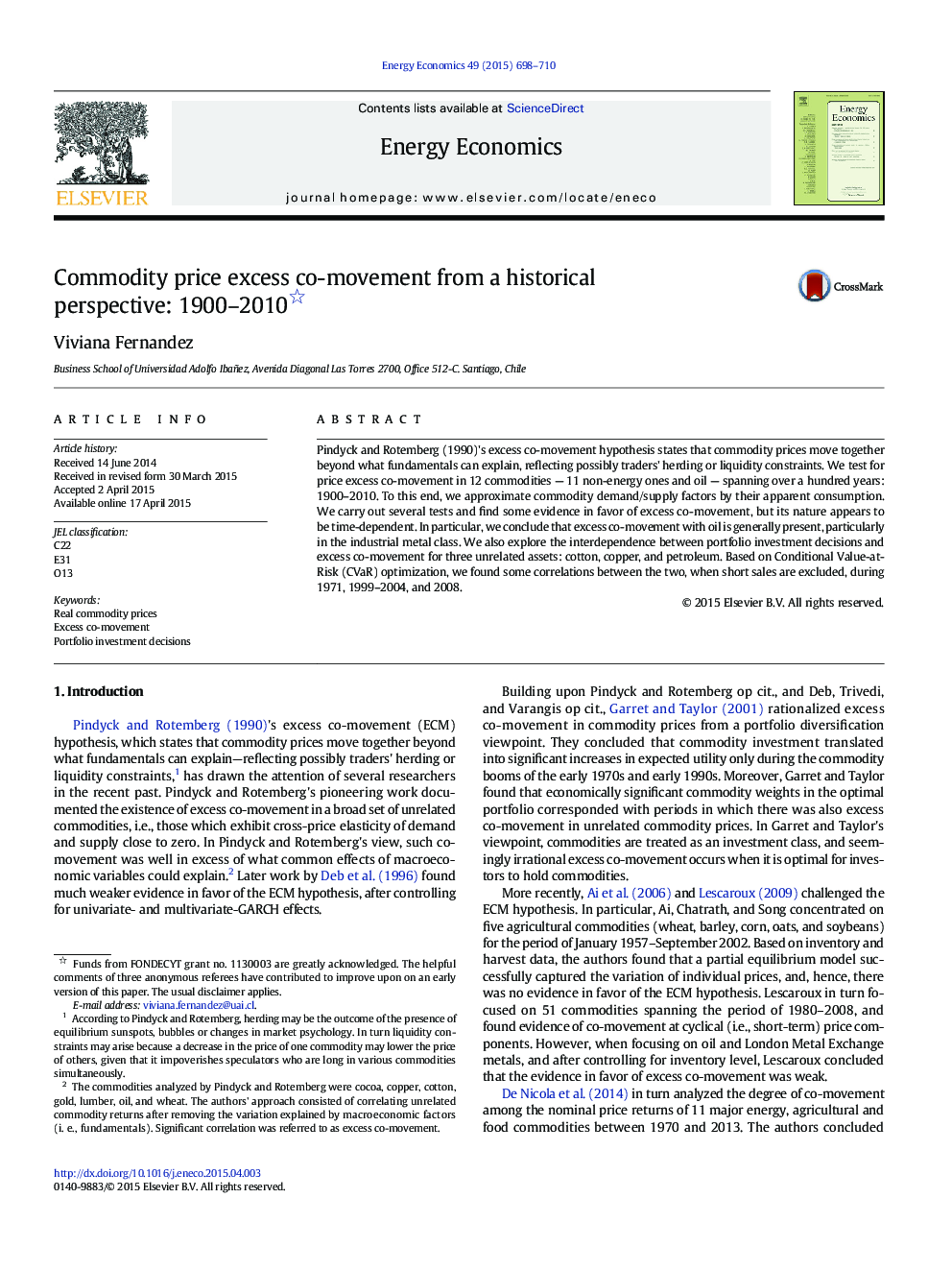| کد مقاله | کد نشریه | سال انتشار | مقاله انگلیسی | نسخه تمام متن |
|---|---|---|---|---|
| 5064525 | 1476714 | 2015 | 13 صفحه PDF | دانلود رایگان |

- Commodity excess co-movement is studied for a long time period spanning 1900-2010.
- Several robustness tests highlight the time-dependent nature of excess co-movement.
- Interdependence between asset allocation and excess co-movement is analyzed.
Pindyck and Rotemberg (1990)'s excess co-movement hypothesis states that commodity prices move together beyond what fundamentals can explain, reflecting possibly traders' herding or liquidity constraints. We test for price excess co-movement in 12 commodities - 11 non-energy ones and oil - spanning over a hundred years: 1900-2010. To this end, we approximate commodity demand/supply factors by their apparent consumption. We carry out several tests and find some evidence in favor of excess co-movement, but its nature appears to be time-dependent. In particular, we conclude that excess co-movement with oil is generally present, particularly in the industrial metal class. We also explore the interdependence between portfolio investment decisions and excess co-movement for three unrelated assets: cotton, copper, and petroleum. Based on Conditional Value-at-Risk (CVaR) optimization, we found some correlations between the two, when short sales are excluded, during 1971, 1999-2004, and 2008.
Journal: Energy Economics - Volume 49, May 2015, Pages 698-710